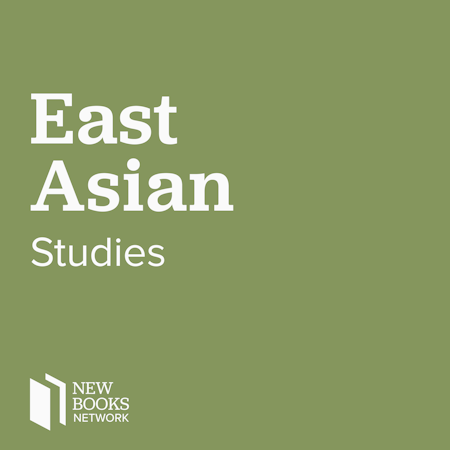
New Books in East Asian Studies
Interviews with Scholars of East Asia about their New Books
1026
Brian R. Dott, "The Chile Pepper in China: A Cu...
Chinese culture and the chile pepper have been intertwined for centuries. Yet, this was not always the case...
78 min
1027
James Carter, "Champions Day: The End of Old Sh...
Shanghai’s status as a bustling, international place both now and in the past hardly needs much introduction, although the centrality of horse racing to the earlier incarnation of the city’s cosmopolitanism is less known...
61 min
1028
Zuraidah Ibrahim, "Rebel City: Hong Kong's Year...
In June of 2019, a proposed amendment to Hong Kong’s Fugitive Offenders Ordinance, sparked widespread protests across the region...
42 min
1029
Brian Eyler, "Last Days of the Mighty Mekong" (...
Eyler documents the huge disruption, both to the Mekong’s ecosystem and to the lives of the people who depend on it, caused by rampant dam construction, tourism development, pollution, not to mention climate change...
50 min
1030
Ann-elise Lewallen, "The Fabric of Indigeneity:...
Combining ethnographic fieldwork in contemporary Ainu communities and organizations with museum and archival research, Dr. Lewallen shows how Ainu women engage in the “self-craft” of identities and cultural viability through clothwork...
72 min
1031
Sean Roberts, "The War on the Uyghurs: China’s ...
Who are the Uyghurs? Sean Roberts explains...
65 min
1032
Steven Heine, "Readings of Dōgen's 'Treasury of...
Heine gives us a comprehensive introduction to this essential Zen text, offering a textual, historical, literary, and philosophical examination of Dōgen’s treatise...
53 min
1033
Sören Urbansky, "Beyond the Steppe Frontier: A ...
The fact that the vast border between China and Russia is often overlooked goes hand-in-hand with a lack of understanding of the ordinary citizens in these much-discussed places, who often lose out to larger-than-life figures like Vladimir Putin and Xi Jinping...
73 min
1034
Harriet Evans, "Beijing from Below: Stories of ...
Between the early 1950s and the accelerated demolition and construction of Beijing's “old city” in preparation for the 2008 Olympics, the residents of Dashalar—one of the capital city's poorest neighborhoods...
84 min
1035
Mary Augusta Brazelton, "Mass Vaccination: Citi...
Mary Augusta Brazelton examines the PRC's public health campaigns of the 1950s to explain just how China managed to inoculate almost six hundred million people against this and other deadly diseases...
92 min
1036
Adam Broinowski, "Cultural Responses to Occupat...
Broinowski analyzes the emergence of Ankoku Butoh (dance of darkness) in the context of America’s de jure and then de facto occupation of Japan following the Second World War...
68 min
1037
Philip Thai, "China's War on Smuggling: Law, Il...
Thai chronicles the vicissitudes of smuggling in modern China—its practice, suppression, and significance—to demonstrate the intimate link between illicit coastal trade and the amplification of state power...
16 min
1038
Xiaoqiao Ling, "Feeling the Past in Seventeenth...
Ling offers readers a richly revealing window into sensory worlds at a particularly cataclysmic time, showing how Chinese literati dealt with the traumatic transition from the Ming to the Qing dynasty...
61 min
1039
David G. Atwill, "Islamic Shangri-La: Inter-Asi...
Atwill questions the popular portrayals of Tibet as isolated, ethnically homogenous, and monolithically Buddhist...
86 min
1040
Ting Zhang, "Circulating the Code: Print Media ...
How could a peasant in Shandong in the Qing dynasty come to know enough about a specific law that he felt confident enough to kill his own wife and his lover’s husband and think that he could get away with it?
62 min
1041
Post Script: A Deep Dive on China
How should we understand what's going on in China? Listen in....
99 min
1042
Daniel P. Aldrich, "Black Wave: How Networks an...
Aldrich illuminates two critical factors that had a direct influence on why survival rates varied so much across the Tōhoku region...
44 min
1043
Nozomi Naoi, "Yumeji Modern: Designing the Ever...
Nao offers the first book-length English-language study of one of Japan’s iconic twentieth-century artists, Takehisa Yumeji (1884–1934)...
77 min
1044
Rebecca E. Karl, "China’s Revolutions in the Mo...
Karl argues that China’s contemporary emergence is best seen not as a “return,” but rather as the product of revolutionary and counter-revolutionary activity and imaginings...
78 min
1045
Mark A. Nathan, "From the Mountains to the Citi...
Nathan offers a history of P’ogyo (Buddhist Propagation) on the Korean peninsula from the late 19th century to the beginning of the 21st that switches its focus to South Korea beginning with the Post-Korean War period...
90 min
1046
Mayfair Yang, "Re-enchanting Modernity: Ritual ...
Yang examines the resurgence of religious and ritual life after decades of enforced secularization in the coastal area of Wenzhou,..
60 min
1047
Bo Mou, "Philosophy of Language, Chinese Langua...
This book brings together work on the syntax and semantics of the Chinese language with philosophy of language, from the classical Chinese and contemporary analytic Anglophone traditions...
90 min
1048
Gregory Afinogenov, "Spies and Scholars: Chines...
Afinogenov offers a trove of insights into the centuries-long entanglements which have shaped Sino-Russian relationships up to the present...
62 min
1049
Andreas Fulda, "The Struggle for Democracy in M...
The key question Fulda poses is to what extent political activists in these three domiciles have made progress in their quest to liberalize and democratize their respective polities...
73 min
1050
Eugenia Lean, "Vernacular Industrialism in Chin...
Lean offers a new understanding of industrialization, going beyond material factors to show the central role of culture and knowledge production in technological and industrial change....
52 min